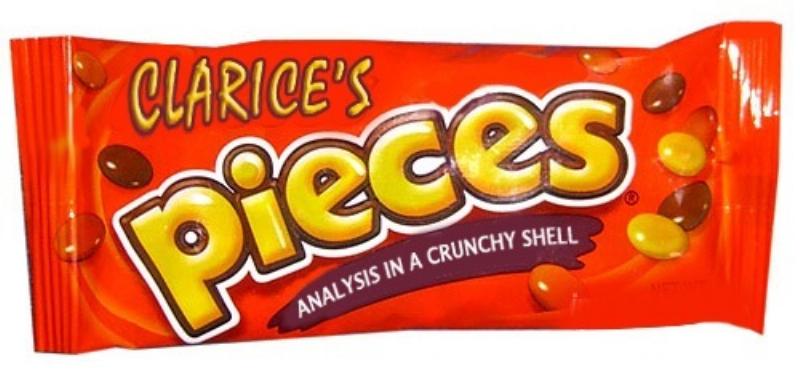


On Friday, Russian President Vladimir Putin flew to Alaska to meet with President Trump in an effort to resolve the long-running war with Ukraine. (Too many geographically handicapped people believed SNL’s skit deriding Sarah Palin, asserting that she had said she could see Russia from her home, and they were surprised to learn how short an eastward trip from Russia is to the United States.) For a long time, corporate media largely has framed the war as one of an innocent party viciously attacked by a big neighbor, one that is worthy of unending military and financial support. As Trump has signaled, he’s had enough and wants Ukraine’s neighbors. whose interest is greater than ours, to step up, several Western European leaders have mouthed support. In advance of the summit, Stephen Bryen set out some relevant facts most of which are not well-publicized elsewhere:
Support for the war has dropped substantially in Ukraine: “More than three years into the war, Ukrainians’ support for continuing to fight until victory has hit a new low. In Gallup’s most recent poll of Ukraine -- conducted in early July -- 69% say they favor a negotiated end to the war as soon as possible, compared with 24% who support continuing to fight until victory.
This marks a nearly complete reversal from public opinion in 2022, when 73% favored Ukraine fighting until victory and 22% preferred that Ukraine seek a negotiated end as soon as possible. Yet, Zelensky continues doing whatever he can to sabotage the Trump-Putin meeting in Alaska and to behave as if Ukraine's army still has some hope of winning a war they are clearly losing.”
Europe is in no realistic position to enforce any ceasefire which might be agreed upon: “A European military contingent is, theoretically, supposed to enforce a ceasefire, the other demand made by Zelensky and his European allies. The idea behind this is a sort of plan (one hesitates to call it that, but it is what it is) to get a cheap ceasefire deal, send in troops, and then restart the war against Russia.”
In fact, Europe has no means to follow through on this -- having neither the troops nor the cash to back up Zelensky’s intransigent position.
Now consider this: if Trump and Putin start to work out a relationship, Europe will be on the outside looking in mainly because they have taken an extreme Zelensky position on Ukraine. Trump is a trade maven. He will promote any deal with Russia by touting investment and technology sharing. Where does that leave the Germans or Italians or anyone else in Europe?
Even more likely, US interest in the NATO alliance will continue to disintegrate. Why back Europe if Europe is undermining US strategic interests? If key European allies continue to try and undermine any Ukraine deal, Washington will see it as harming US national security. You cannot keep backing Zelensky and expect otherwise.
Zelensky, for his part, defies democratic norms. Not only does he not follow public opinion, but he sees to it that he keeps martial law in place, refuses to have elections, and jails or exiles his opponents. During the worst of times for the British in World War II, with the loss of most of Europe, the retreat from Dunkirk, the Blitz on London, Britain never declared martial law, nor did they jail opposition politicians (other than some Nazis), attack minorities or close down churches they didn't like.
Zelensky won't change direction. He will continue to try and undermine US-Russian negotiations. But Europe needs to rethink its support for a Zelensky-led Ukraine. It is digging a deep hole for its future.
Aside from all this, we do have ample evidence that Ukraine under Zelensky is  completely corrupt, a money-laundering machine through which billions of dollars were washed and ended up in the pockets of the Left and cronies. Hardly a sympathetic victim worthy of our wasting more arms and money to defend.
completely corrupt, a money-laundering machine through which billions of dollars were washed and ended up in the pockets of the Left and cronies. Hardly a sympathetic victim worthy of our wasting more arms and money to defend.
Unfortunately for Zelensky’s grand plan, Trump saw through it, and both he and Putin rejected a ceasefire, preferring an end to the war altogether.
President Trump outlined the next steps:
A great and very successful day in Alaska! The meeting with President Vladimir Putin of Russia went very well, as did a late night phone call with President Zelenskyy of Ukraine, and various European Leaders, including the highly respected Secretary General of NATO. It was determined by all that the best way to end the horrific war between Russia and Ukraine is to go directly to a Peace Agreement, which would end the war, and not a mere Ceasefire Agreement, which often times do not hold up. President Zelenskyy will be coming to D.C., the Oval Office, on Monday afternoon. If all works out, we will then schedule a meeting with President Putin. Potentially, millions of people’s lives will be saved. Thank you for your attention to this matter!
Monday, Zelensky will fly to the U.S. and will be presented with the outline of the Trump-Putin plan:
It is too bad we do not have a detailed readout on the actual conversation at Joint Base Elmendorf-Richardson. Trump's use of provocative symbols, F-35s and a flyover involving a B-2 stealth bomber, and the lack of the usual protocols (no honor guard and no national anthems), hardly was conducive to a diplomatic encounter of heads of state. Moreover, the use of a military base, explained as a "security measure," was inappropriate, but the Russians, anxious to state their case to Mr. Trump, intent on showing deep respect for the United States, accepted the venue and the conditions, even the escort of Mr. Putin's Presidential aircraft by US fighter jets.
The bottom line is, at least for now, US policy has shifted. The US and Trump no longer support a ceasefire but want to settle the Ukraine war through negotiations. How long that will take, and even if it is possible, remains to be seen. Meanwhile the war continues and, for the most part, Russia will continue pushing to take Pokrovsk and to expand the contact line further to the west. Ukraine, already stretched and now with uncertainties on military supplies, is facing a crisis.
(Trump’s provocative setting has echoes of Putin’s. In a meeting with Angela Merkel, who is terrified of dogs, he brought his own pooch in to her obvious discomfort.)
Hans Mahncke has an idea (which I share) about what took place in Alaska:
Here’s what likely happened at the Alaska Summit. The broad outlines of a Ukraine peace agreement were already in place -- otherwise Trump wouldn’t have agreed to a summit at all. Yesterday was about confirming that everyone’s on the same page and committed to moving forward. Trump’s new insistence on going straight to a full peace agreement, not just a cease fire, is another sign of that. On Monday, little Zelensky will be told what the deal is. He might throw another tantrum, in which case he and his European friends will eventually find out the hard way that it won’t end well for them. Or he might come to his senses, accept reality, and take the deal, in which case things will move very quickly.
Mahncke views Zelensky’s latest tweet about how well his war is going as akin to a Hitler-in-the-bunker statement.
Whether or not you agree, my view is that reality wins in the end, and Trump’s view, unlike Zelensky’s or Britain’s or Germany’s or France’s, is one that accords with it.
